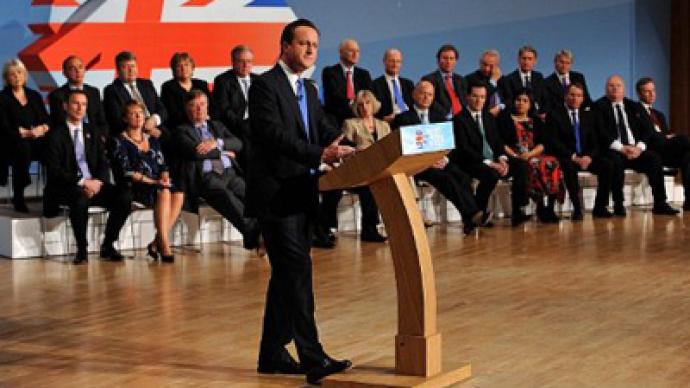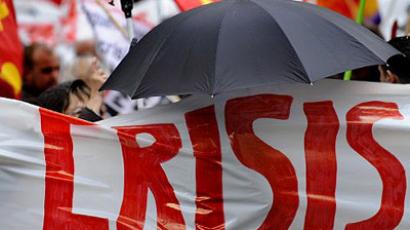UK politicians split over leave-the-EU referendum

British Eurosceptics are cock-a-hoop over a decision to hold a parliamentary vote on a referendum on whether the country should leave the European Union. The move is unlikely to please Prime Minister David Cameron, who opposes the referendum.
The Commons Backbench Business Committee will agree to grant a one-day debate on a referendum after parliament returns next week, The Daily Mail has learnt.“Given the crisis in the Eurozone, this issue has become more relevant than ever. There is a clear majority of backbench MPs who want to debate this and we have to respond to that,” committee chairman Natascha Engel was quoted as saying.“The whole purpose of my committee is to make sure the big issues of the day are aired in parliament. People in pubs and shops all over Britain are discussing our membership of the EU and it is time MPs openly debated it too,” she added.The debate, which is to be held before Christmas, was given the green light after more than 100,000 people signed a petition demanding a referendum and handed it over to a new group of MPs. Among those who signed the petition were Tory MPs Mark Reckless and Douglas Carswell.Even if MPs vote in favor of a referendum, however, the result would not be binding on the government. Prime Minister David Cameron has repeatedly stated he would not support a referendum on UK membership of the EU. In a speech to the Conservative Party in Manchester, he maintained he does not believe the UK should quit the EU. The government's priority is to get the crisis in the Eurozone sorted out and get the economy revived, he added. Cameron also told BBC1’s Andrew Marr Show that he believed leaving the EU would be a wrong step for his country. “It is not our view that there should be an in/out referendum,” he said. “I don't want Britain to leave the EU. I think it's the wrong answer for Britain.” "What most people want in this country is not actually to leave the EU, but to reform the EU and make sure that the balance of power between a country like Britain and Europe is better," David Cameron added. The British PM stressed that the United Kingdom is a trading nation which has an interest in remaining within the EU’s single market. “It is vital for our economic future,” he added. However, much pressure has been placed on David Cameron lately to allow people a say in deciding the future of their country. A senior adviser to Cameron, Steve Hilton, has added his voice to those who want Britain to quit the EU. The UK’s right-wing press is also pressing for an EU pullout. “After far too many years as the victims of Brussels larceny, bullying, over-regulation and all-round interference, the time has come for the British people to win back their country and restore legitimacy and accountability to their political process,” writes The Daily Express.The newspaper’s crusade to demand that Britain leaves the EU was backed by almost 400,000 people in a postal coupon campaign earlier this year.However, Conservative attitudes have hardened in recent weeks. Tory ex-deputy Prime Minister Lord Heseltine said that clawing back powers from Brussels at a time of economic crisis was "the last thing anybody wants."Anti-Europe campaigners are divided over how the question should be put to the British people in a referendum. Some opt for a simple “stay or leave” choice, while others believe it is necessary to add a third option to the list – that of a return to an old-style trading association. Choosing this latter would open the way for the government to demand that key powers over health and safety, immigration and other issues are handed back to Westminster. If the EU declines, then Britain would be free to leave the Union.Opinion polls have revealed that about 50 per cent of the British population would like the country to leave the EU. However, when the question was rephrased and people were given the opportunity to return to a ‘70s-style trade association, a clear majority chose that option.The UK has come bottom of a recent survey gauging the quality of life in European Union countries. The uSwitch Quality of Life Index shows that the deteriorating situation in the country has led some 46 per cent of those questioned to consider emigrating. Somewhat illogically, given the favorable showing by other EU countries, they associate their low living standards with the UK’s membership of the body.














